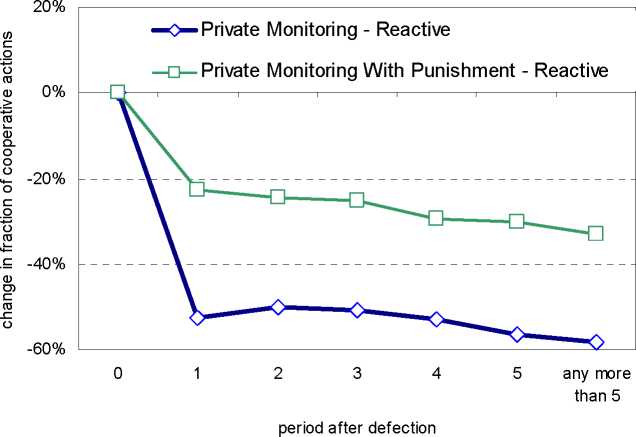Figure 6: Strategies of the representative subject in private monitoring with punishment

(*)
Table 6: Frequency of personal punishment
Subject requesting Cooperate
punishment Defect
Opponent receiving punishment
Cooperate_______Defect
0.1% 58.3%
5.4% 5.2%
Whenever a subject requested personal punishment, she was more likely to continue
cooperating. Table 7A suggests that a cooperator encountering a defector was much more
likely to cooperate in the following period when she requested personal punishment than
when she did not; there was an astounding 29% point difference (75.5% vs. 46.7%).16
In interpreting Result 8, recall that our theoretical framework is one of a
homogeneous population, as in Kandori (1992) and Ellison (1994). Within this
framework the punishment behavior we have observed seems at odds with equilibrium
(*) The unconditional frequency of personal punishment is 9.1%. Each cell indicates the frequency of
personal punishment inflicted on the opponent conditional on the outcome in the match in stage one (there
are four possible outcomes). The outcome (Cooperate, Defect) occurred 509 times.
16 Table 7B suggests that a defector who had been punished by a cooperator was more likely to cooperate in
the following period (34.5% vs. 24.1%). Once we controlled for all other factors, however, the evidence is
not so clear-cut (Table 5).
25
More intriguing information
1. The name is absent2. Tax Increment Financing for Optimal Open Space Preservation: an Economic Inquiry
3. Does Market Concentration Promote or Reduce New Product Introductions? Evidence from US Food Industry
4. The name is absent
5. The name is absent
6. Towards a Mirror System for the Development of Socially-Mediated Skills
7. The problem of anglophone squint
8. Brauchen wir ein Konjunkturprogramm?: Kommentar
9. The name is absent
10. Distribution of aggregate income in Portugal from 1995 to 2000 within a SAM (Social Accounting Matrix) framework. Modeling the household sector